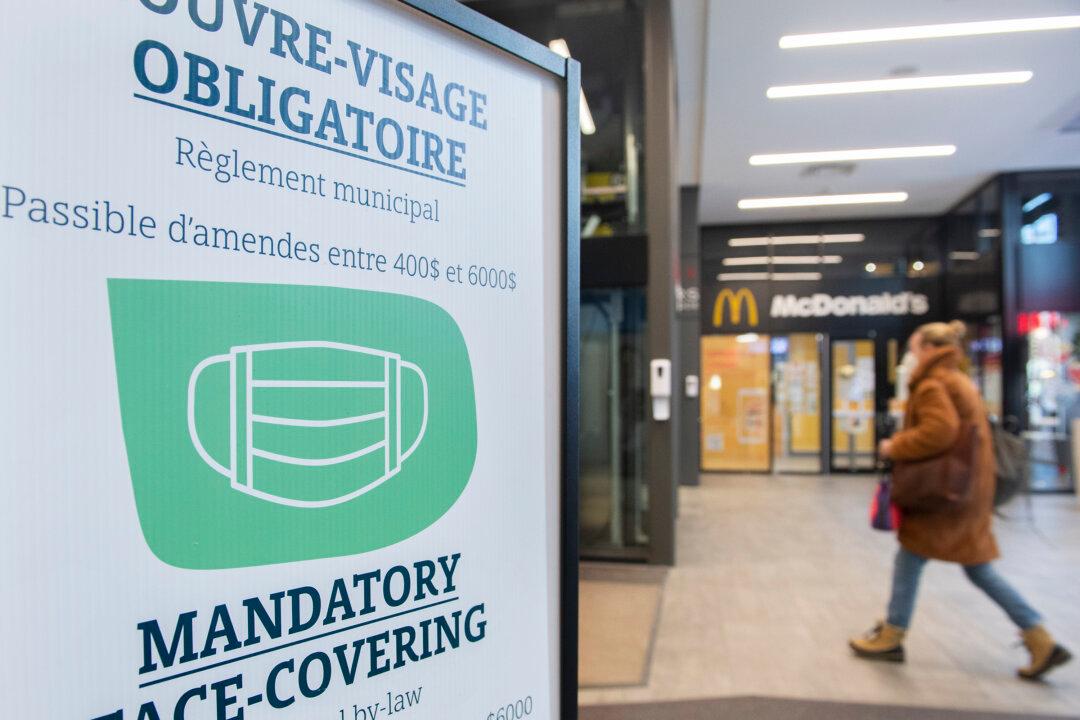Quebec is planning to lift its mask mandate in public spaces by mid-April and remove most other COVID-19 measures earlier than previously announced.
The Quebec government said in a March 2 release that as of March 12, all public places can return to 100 percent capacity and resume normal business hours, with no table capacity limits in restaurants, bars, taverns, and casinos.





